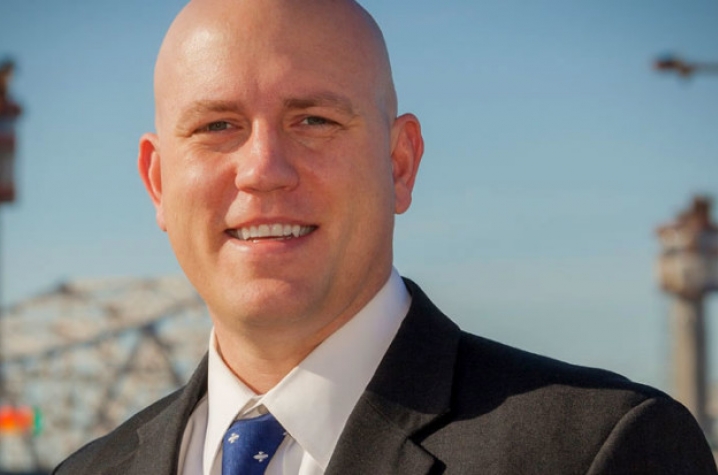BLOG: Bring Awareness to Down Syndrome, Spina Bifida

The following is a blog post by Mark Leach, bioethics specialist for the UK Human Development Institute's National Center for Prenatal and Postnatal Down Syndrome Resources.
Oct. 13, 2015
October is the national awareness month for Down syndrome and spina bifida. On Oct. 3, Down Syndrome of Louisville held its annual awareness walk and the Spina Bifida Association of Kentucky (SBAK) held walks in Louisville, Lexington, and Paducah on Oct. 10. These organizations have joined in an effort to raise awareness for new and expectant parents.
At the end of August, the nearly 400 practicing obstetricians in Kentucky were sent a package of information that Kentucky law instructs should be provided to parents receiving a pre- or postnatal test result for Down syndrome or spina bifida. The law, KRS 211.192, was passed in 2013 requiring all health care practitioners to provide information about Down syndrome identified by the Cabinet for Health & Family Services. In 2015, it was amended to similarly require that information about spina bifida be provided.
The Cabinet has a website that identifies the information to be provided. However, given budgetary constraints, no public money was allocated for ensuring patients would receive this information that Kentucky law requires they receive.
Through a grant from the WHAS Crusade for Children, along with funding from the Human Development Institute (HDI) at University of Kentucky, SBAK, and the Down syndrome support organizations in Louisville, Lexington, Owensboro, and Paducah, hard copies of the recommended information were mailed to every practicing OB in Kentucky.
The law requires that the information provided be:
"Up-to-date, evidence-based, written information about Down syndrome or spina bifida that has been reviewed by medical experts and Down syndrome or spina bifida organizations and includes information on physical, developmental, educational, and psychosocial outcomes, life expectancy, clinical course, intellectual and functional development, and treatment options."
Health care providers are also required to provide the contact information for Down syndrome and spina bifida support organizations when delivering a test result.
The law is based on federal legislation that recognized that too often parents are not given accurate information and referral to support organizations, even though professional medical guidelines have recommended this for years. Further, studies of parents and medical professionals found that instead the opposite happened with too great of frequency: health care providers gave no written information or, worse, inaccurate and outdated information about what living a life with Down syndrome or spina bifida can be like.
The materials for Down syndrome are based at the HDI's National Center for Prenatal & Postnatal Down Syndrome Resources. The materials were developed with input from the leading professional medical organizations as well as Down syndrome organizations. Mothers who have received the Center's materials have described them as a "lifeline" giving them a vision of what their and their child's life can be like.
All of the National Center materials are available for free on-line with the ones identified by the Cabinet also available in Spanish translation. Hard copies also can be ordered. The National Center is supporting similar efforts in implementing laws like Kentucky's that have been passed in Massachusetts, Maryland, and nine other states.
It is the hope that through this mailing, Kentucky obstetricians and their staff will be aware that these resources are required and available for them and their patients. By receiving this information, and then delivering it to their first patient that receives a test result for Down syndrome or spina bifida, it is further hoped that this becomes the standard of care across Kentucky, with physicians ordering replacement copies to ensure they have the required information for their patients.
To further raise awareness about these conditions, simply attending community walks happening statewide in October is an easy first step. In doing so, not only will the attendee see families and their loved ones with Down syndrome and spina bifida, but they will also support the mission of these organizations that work yearround to improve the lives of their members.
Each of these measures — the law, the mailing of materials, and supporting Down syndrome and spina bifida awareness walks — helps parents learning that their child has one of these conditions. It provides parents an accurate picture of what their lives can be like and lets them know of the many good organizations and services that will be there to help them and their child.
This piece originally appeared as an op-ed in the Courier-Journal.
MEDIA CONTACT: Whitney Harder, 859-323-2396, whitney.harder@uky.edu




